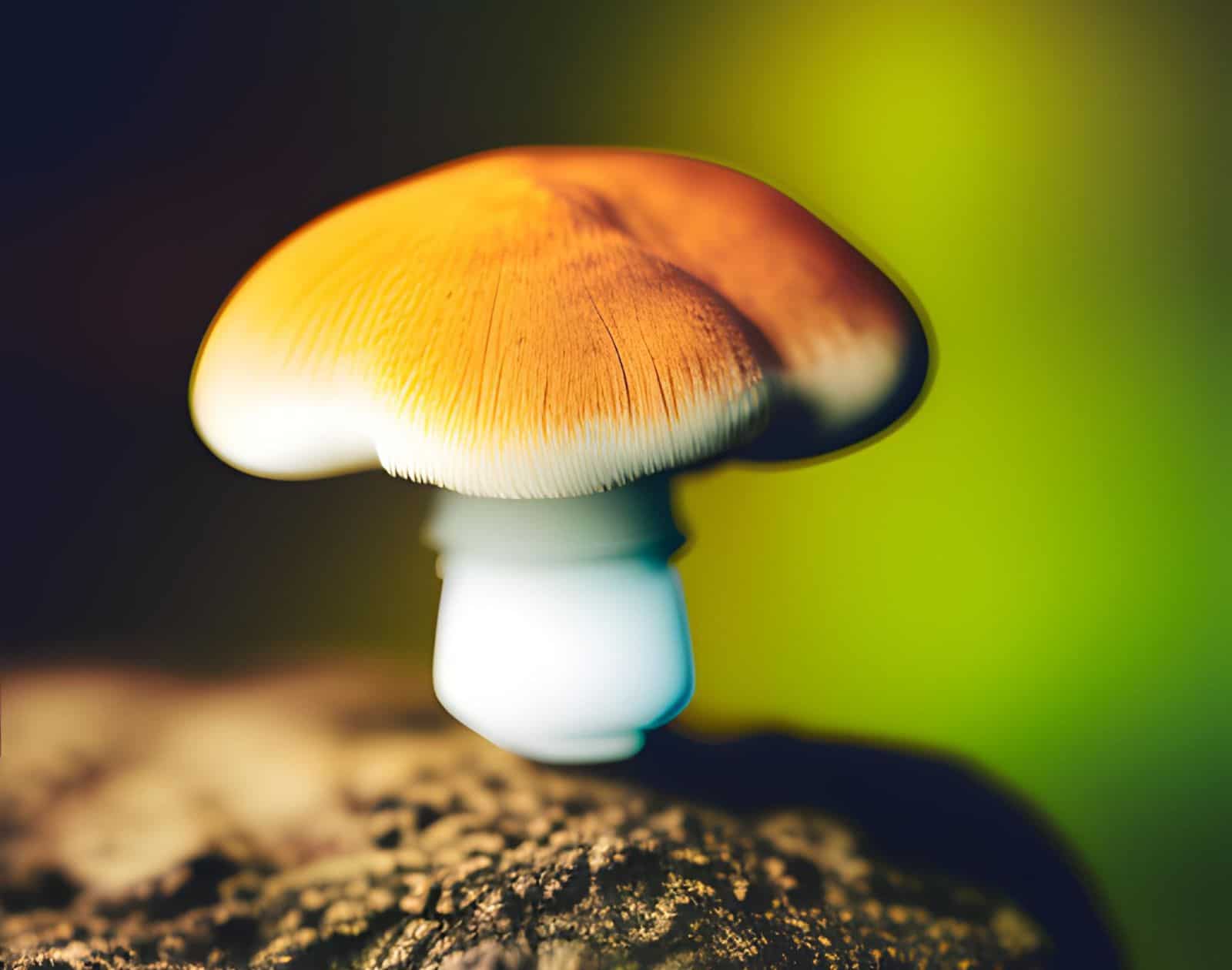Lion’s mane, scientifically known as Hericium erinaceus, is a popular medicinal mushroom lauded for its potential cognitive and nerve health benefits. These benefits have been attributed to its ability to boost the production of nerve growth factor (NGF), which is essential for maintaining the proper function of the nervous system. As people are increasingly exploring natural alternatives for their health regimen, understanding the appropriate dosage of lion’s mane per day has become crucial.
The recommended daily dosage for lion’s mane can vary depending on the specific product and individual needs. One study suggests a daily intake of 3-5 grams of dried fruiting body to increase NGF production, while another source reports using 250 mg tablets (96% dry powder) three times a day as a potentially effective dosage. It is important to note that individual responses to lion’s mane supplements may differ, and it is always advisable to consult with a healthcare professional before incorporating this supplement into one’s daily routine.
In conclusion, determining the ideal lion’s mane dosage per day requires careful consideration of various factors. An individual’s personal health needs, specific product formulation, and guidance from a healthcare professional all play a role in determining the most suitable dosage for optimal results. Regardless of the chosen dosage, it is crucial to monitor one’s response and make any necessary adjustments under the supervision of a qualified healthcare provider.
Understanding Lion’s Mane
Table of Contents
What is Lion’s Mane?
Lion’s Mane, also known as Hericium Erinaceus or the Yamabushitake, is a unique type of edible mushroom. This mushroom is renowned for its potential health benefits, especially in the field of cognitive health and neurological function. Lion’s Mane mushrooms have been used historically in Traditional Chinese Medicine for their various medicinal properties.
The Lion’s Mane mushroom is characterized by its long, cascading tendrils that resemble a mane, which is where it gets its name. They have a distinctive taste and texture and can be found in many countries, particularly in Asia.
Hericium Erinaceus
Hericium Erinaceus is the scientific name for the Lion’s Mane mushroom. It is an edible mushroom that grows in the wild on decaying logs and trees. This species has gained significant attention in recent years for its potential health benefits.
Research has shown that Lion’s Mane may have a positive effect on cognitive function, as it appears to increase the production of Nerve Growth Factor (NGF), a protein responsible for the growth and maintenance of nerve cells. This characteristic has made it an interesting subject for studies related to neurodegenerative diseases like Alzheimer’s and Parkinson’s.
In addition to cognitive benefits, Lion’s Mane is also thought to have immune-boosting properties, making it a popular choice for those seeking a natural method to bolster their immune system. Furthermore, it has been used in Traditional Chinese Medicine to address various health concerns, such as stomach ailments and inflammation.
It is important to be cautious with the dosage of Lion’s Mane supplements, as too much or too little may affect the potential benefits. Generally, a daily dosage of 3-5 grams has been found to be effective for increasing NGF production. However, it is always best to consult a healthcare professional before incorporating Lion’s Mane into your daily routine.
Health Benefits
Brain Health
Lion’s mane has been shown to exhibit potential antidepressant effects and support cognitive function. The mushroom contains natural compounds that stimulate the production of nerve growth factor (NGF), which plays a vital role in the growth and maintenance of neurons. The neuroprotective benefits of lion’s mane can contribute to enhancing memory, focus, and overall brain health. Additionally, its antioxidant activity helps protect neurons from oxidative stress and damage caused by free radicals.
Mental Health
Lion’s mane has been found to improve mood in a dose-dependent manner. Its potential antidepressant and anxiolytic effects can support mental well-being and decrease stress levels. By promoting nerve growth and reducing inflammation, the mushroom may also aid in the alleviation of symptoms associated with neurological disorders. For optimal mental health benefits, daily intake of 1000mg to 1500mg of lion’s mane is recommended.
Physical Health
The various compounds found in lion’s mane offer a range of physical health benefits. Its anti-inflammatory and antioxidant properties assist in supporting a healthy immune system, thus providing overall health benefits. Lion’s mane can be particularly beneficial for heart health, as it helps regulate blood sugar levels and decrease inflammation, which can both contribute to cardiovascular issues. Furthermore, the mushroom has gastroprotective effects, meaning it can protect the stomach lining from damage and support digestive health.
Lion’s Mane Dosage
Lion’s mane is a medicinal mushroom known for its potential cognitive and nerve health benefits. When it comes to determining the proper dosage, it’s essential to consider factors such as individual needs and the specific supplement being used.
A common daily dose of lion’s mane ranges from 500 to 3,000 mg, but the appropriate lion’s mane dosage varies depending on factors such as individual goals and specific supplement formulations. Some studies have used dosages as low as 250 mg, while others have gone up to 1,000 mg or even 10 g per day depending on the context and research goals 1 2 3.
Supplement users should follow the manufacturer’s recommended daily dosage on the product label. Additionally, those new to lion’s mane may want to start with a lower dosage and gradually increase it based on personal experience and desired outcomes.
It’s important to note that the effectiveness of lion’s mane dosage may vary among individuals, as some people may respond better to specific supplement types and dosages than others. Therefore, monitoring personal responses, consulting with healthcare professionals, and adjusting the dosage as needed is crucial for ensuring optimal benefits.
To sum up, determining the proper lion’s mane dosage requires consideration of various factors including individual needs, desired outcomes, and specific supplement formulations. Starting with a lower dosage and gradually increasing it, following the manufacturer’s recommendations, and consulting with healthcare professionals can help optimize lion’s mane supplementation for cognitive and nerve health benefits.
Various Forms of Lion’s Mane
Capsules
Lion’s Mane is commonly found in capsule form, offering an easy and convenient method for taking the supplement. Capsules typically contain a daily dosage of 250mg to 750mg of Lion’s Mane mushroom powder. This form is popular due to its portability and the ability to maintain a consistent daily dosage.
Powder
Another popular form of Lion’s Mane is mushroom powder. This versatile option can be mixed into beverages, smoothies, or even incorporated into recipes. The recommended daily dosage for Lion’s Mane powder ranges between 500mg and 3,000mg. The flexibility of powder allows individuals to adjust their dosage based on personal needs and preferences.
Teas
Lion’s Mane teas are gaining popularity for those who prefer a more soothing and ritualistic approach to consuming the supplement. Teas may not have a standardized dosage like capsules or powders, but they still offer the beneficial properties of Lion’s Mane. To prepare Lion’s Mane tea, steep the mushroom powder or dried mushrooms in hot water, strain, and enjoy. Keep in mind that the dosage may vary depending on the concentration of the tea, and one should always start with a lower dosage and adjust accordingly.
How to Include in Your Diet
Foods
Lion’s mane mushroom can be a nutritious addition to your diet by incorporating it into various dishes. It has a unique texture and mild flavor, making it versatile for a variety of recipes. You can sauté lion’s mane mushroom slices in some olive oil or butter and season them with your favorite spices to create a delicious side dish. Alternatively, you can add chopped mushrooms to stir-fries, soups, and even pasta sauces for an extra boost of flavor and nutrients.
Smoothies
Adding lion’s mane mushroom powder to your daily smoothies is another effective way to include its potential benefits. The powder blends easily with other ingredients, such as fruits, vegetables, and protein powders, making it a convenient option for those who prefer drinking their nutrients. To create a well-balanced lion’s mane smoothie, you can combine the mushroom powder with some spinach, banana, almond milk, and chia seeds for a refreshing and nutrient-dense beverage.
Coffees
A popular and easy method to incorporate lion’s mane into your daily routine is by adding it to your morning coffee. Many specialty coffee shops and online retailers offer convenient pre-made lion’s mane coffee blends or standalone powders that can be easily mixed in with your regular coffee. By combining lion’s mane mushroom with your coffee, you can enjoy both the cognitive benefits from the mushroom and the energizing effects of caffeine. Just be sure to start with a small dose and gradually increase it as needed to manage potential side effects or sensitivity to the mushroom.
Potential Side Effects
Common Side Effects
Lion’s mane mushroom is regarded as a safe and well-tolerated natural supplement. However, some common side effects have been reported in a few cases. These may include mild gastrointestinal discomfort, such as nausea, bloating, and diarrhea. In most instances, these side effects are temporary and subside on their own as the body adjusts to the supplement. It is essential to start with a low dosage and gradually increase it to minimize the risk of experiencing these side effects.
Allergies and Sensitivities
Although rare, some individuals may develop allergic reactions or sensitivities to lion’s mane mushroom. Symptoms of an allergic reaction can include itching, skin rash, swelling, difficulty breathing, and dizziness. In such cases, it is crucial to discontinue usage and consult a healthcare professional immediately. Additionally, individuals with a known allergy to mushrooms or mold should exercise caution before using lion’s mane supplements.
To avoid potential side effects, it is recommended to follow the manufacturer’s recommended dosage for lion’s mane supplements and consult with a healthcare professional before beginning any new supplement regimen, particularly for those with pre-existing medical conditions or taking medications. Remember that the information provided in this section is meant for educational purposes only and should not be treated as medical advice. Always consult with a qualified healthcare professional before making decisions about your health.
Research on Lion’s Mane
Human Studies
Lion’s Mane mushroom has been the subject of numerous human studies, some of which demonstrate its potential for cognitive support. In a study conducted on older adults with mild cognitive impairment, participants who took a Lion’s Mane supplement daily for several weeks showed significant improvements in cognitive test scores. This indicates that Lion’s Mane may have a positive effect on memory loss and cognitive decline in older adults.
Clinical Trials
Clinical trials involving Lion’s Mane have specifically targeted neurodegenerative diseases such as Parkinson’s and Alzheimer’s. For example, a study on the effects of Lion’s Mane on multiple sclerosis found that participants who consumed the mushroom experienced an increase in nerve growth factors. This suggests that Lion’s Mane may contribute to alleviating symptoms of these diseases, although further research is necessary to confirm its efficacy.
Journal Research
Various journals have reported on the potential of Lion’s Mane for cognitive support. Lion’s Mane for Brain Fog: Unlocking the Power of Mushrooms for Cognitive Support summarizes research that indicates Lion’s Mane is generally safe for most people. The article also points out that studies have used varying dosages of Lion’s Mane, ranging from 500 to 3,000 mg per day. While there is currently no consensus on the optimal dosage, it is important for individuals to consider their personal needs and consult with a healthcare professional before starting a Lion’s Mane supplement regimen.
Sustainability and Size Considerations
Lion’s mane mushroom has gained popularity due to its potential health benefits, particularly in supporting cognitive function and nerve health. When considering the dosage of lion’s mane per day, it’s crucial to evaluate the sustainability and size aspects.
Lion’s mane mushrooms can grow in various sizes, making the dosage recommendations somewhat variable. A standard daily dosage is in the range of 1g per day. However, the exact dosage may depend on the specific supplement, product formulation, or individual conditions.
As the demand for lion’s mane mushrooms increases globally, it is important to ensure their cultivation and harvesting practices are sustainable. Sustainable practices will ensure that these mushrooms can be consumed by future generations while minimizing environmental impacts. Some of the factors that contribute to the sustainability of lion’s mane mushroom production include:
- Choosing environmentally friendly cultivation methods: Cultivators should use organic and non-chemical processes as much as possible, thereby supporting biodiversity and reducing pollution.
- Seasonal harvesting: Harvesting the mushrooms at the right growth stage and during the appropriate seasons ensures that the natural ecosystem is not disrupted.
- Reducing waste and pollution: By specifying proper storage, transportation, and packaging methods, environmental harm can be minimized.
- Supporting local and small-scale farmers: A focus on local and small-scale cultivators can help promote sustainable practices, as these farmers are more likely to use environmentally friendly approaches.
- Educating consumers: Teaching consumers about the benefits of sustainably sourced lion’s mane will raise awareness and encourage responsible choices.
In conclusion, considering sustainability and size factors in the context of lion’s mane dosage per day is of utmost importance. A responsible and well-informed approach to mushroom consumption can contribute to the betterment of both individual health and the environment.
Advanced Uses
Use in Nootropics
Lion’s mane mushroom gummies has gained popularity for its potential nootropic benefits, particularly in improving cognitive functions, such as memory and focus. Several studies have shown that lion’s mane contains bioactive compounds that can stimulate the production of nerve growth factors, enhancing the growth and development of neurons. As a result, incorporating this mushroom into your daily routine may help support overall brain health and boost cognitive performance.
One of the advanced uses for lion’s mane is in supplementing nootropic stacks, which consist of various compounds designed to improve cognitive functions. When used in combination with other nootropics, lion’s mane may help enhance their effectiveness and achieve optimal brain performance. Typical daily dosages of lion’s mane for nootropic purposes range from 1-2g per day, though it’s always recommended to consult with a healthcare professional before starting any supplementation regimen.
Use in Chinese Medicine
Lion’s mane mushroom has a long history of use in traditional Chinese medicine. Known for its ability to strengthen the immune system, improve digestion, and promote overall well-being, lion’s mane has been utilized by practitioners for centuries to address a variety of ailments. In addition to its cognitive-enhancing properties, the mushroom has demonstrated potential in the prevention and treatment of neurodegenerative diseases, such as Alzheimer’s and Parkinson’s disease.
In Chinese medicine, this multifaceted mushroom is often prescribed to help boost energy levels, improve mood, and support heart health. The therapeutic dosage can vary depending on the individual’s needs and symptoms, but maintenance doses typically fall between 1-2g per day. As always, it is essential to talk to a qualified healthcare practitioner before incorporating lion’s mane into your daily routine, especially if you suffer from any preexisting medical conditions.
Frequently Asked Questions
What is the recommended dosage of Lion’s Mane powder?
The recommended dosage of Lion’s Mane powder may vary depending on the individual’s needs and preferences. However, it is generally suggested to start with a lower dosage, such as 250mg to 750mg per day, before adjusting based on personal experience or guidance from a healthcare professional (source).
How many Lion’s Mane capsules should be taken daily?
The number of Lion’s Mane capsules to be taken daily depends on the strength of the capsules. As a general guideline, one might want to aim for a total daily consumption of around 250mg to 750mg of Lion’s Mane extract. It is important to read the label of the specific capsule brand to determine the appropriate number of capsules to reach the desired daily dosage.
What is the appropriate Lion’s Mane tincture dosage?
Lion’s Mane tincture dosages can also vary based on the individual and the specific tincture product used. It is recommended to follow the manufacturer’s instructions on the label for the best results. If there is no specific guidance, starting with a lower dosage and gradually increasing according to personal tolerance and desired effects is advised.
Is 1000mg of Lion’s Mane a safe daily dose?
For some individuals, 1000mg of Lion’s Mane per day may be safe and effective (source). However, it is important to emphasize that everyone’s needs and tolerance may differ. Therefore, it might be preferable to start with a lower dose and adjust as needed, especially if new to Lion’s Mane supplementation.
What is the appropriate daily dose of Lion’s Mane for children?
There is limited research on the appropriate dosages of Lion’s Mane for children. It is essential to consult a pediatrician or healthcare professional before giving Lion’s Mane as a supplement to children. A medical expert can provide guidance on the appropriate dosage based on the child’s age, weight, and overall health condition.
Can Lion’s Mane tea be taken daily and in what amount?
Lion’s Mane tea can be a convenient way to enjoy the benefits of this mushroom. Regarding daily consumption, there is currently no specific guideline on the optimal amount. It is always best to start with a moderate dose or follow the instructions provided by the tea product’s manufacturer. As with any supplement, it is important to monitor one’s response and adjust as needed, and to consult a healthcare professional if unsure about its use.







